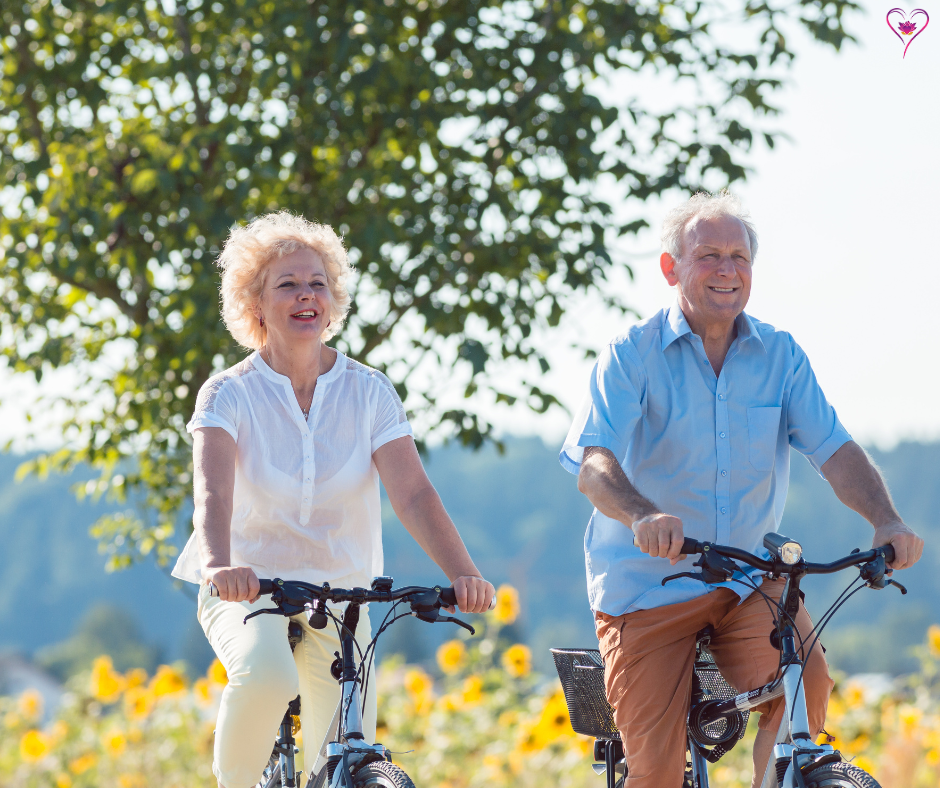Why Is a Healthy Lifestyle So Important, Especially In Old Age?
We are living longer and longer these days. There is a connection between a healthy lifestyle, both physically and mentally, to ensure life quality. There are various ways to improve your health through a nutritious diet, exercise and more, even well into old age.
How is it Different as We Get Older?
Even at a younger age, a lack of physical activity and regular exercise and a poor diet can contribute toward high blood pressure, heart disease and heart attacks, lack of sexual activity and poor health in body and mind.
Therefore, to appreciate the value of a healthy lifestyle as older adults, we must acknowledge the changes that occur within us as we age. When you are aware of the changes, they will not surprise you.
These life changes are both physical and emotional. Emotionally, we struggle with the loss of loved ones, our careers and our independence. Physically, our bodies are not as vibrant as when we were younger.
What Goes in Matters
As your age progresses, some changes happen, such as a slower metabolism and changes in your sense of smell and taste, which can affect your appetite.
It may be challenging to shop for food and prepare it. In this case, you could reach out to a family member or your health provider. The good news is that there are programs in many communities that provide healthy food to older people.
If you can make your food, your diet should be high in fiber, vegetables, fruits, whole grains and lean protein (meat). These foods will keep you energetic while also aiding your slow digestion.
Be sure to hydrate even when you do not feel thirsty; water keeps your energy levels up while also making your skin smooth and looking young. It is essential to make your food taste and look good to encourage your appetite.
Another fun thing is to eat with friends, family or a neighbor. This way you get to keep in touch with them, and you are more encouraged to eat, despite your reduced appetite.
Moving is Key
A study conducted in Sweden found exercise to be the number one contributor to long life. It adds more years to your life. If you have not exercised, it is never too late to start.
Exercise has many benefits, including:
- Prevention of memory loss (dementia)
- Feel-good hormones, called endorphins
- Reduction of chronic pain
- Increased muscle mass from weight training improves metabolism
- Improves the quality of sleep
- Improves flexibility, balance, and posture
- Boosts your immune system
Start small and then build up as time goes by. Do something that you enjoy to keep you motivated, like walking a pet, gardening or swimming
If you can exercise with a friend or a family member, you can keep each other motivated. Yoga is also a great form of exercise. Our muscles stiffen and shorten when we do not exercise but stretching improves that. Five minutes of stretching a day can make all the difference.
Exercise Your Brain
Feeding your brain, especially now that you are retired from your career, is no longer challenging. Keeping yourself creative and alert with activities like word games, crossword puzzles, learning a new language or learning a new skill keep your brain healthy. Studies have shown that keeping your mind active can help with memory loss.
Feeling Connected
Humans need other people. This need does not change with age. Make time for your people close to you. Even simple things like taking a walk or getting a coffee with them can help you feel closer. The care and support you share can help keep your mind healthy.
If your loved ones do not live near you, try to meet new people. Visit your local senior center.
Volunteer, or even work part-time at a job that you like.
Good mental and physical health helps us handle life better. It can help us bounce back when bad things happen. It allows us to enjoy our lives. The more we take care of ourselves, the more we can be there for others. We at Platinum Select Care are here to help your loved ones stay healthy, happy and connected.


